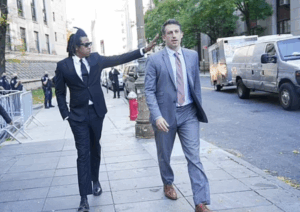National Guard troops have been deployed in Washington DC following President Trump's accusations of rising crime. Mayor Muriel Bowser condemns the action as authoritarian, asserting local autonomy despite federal arrests aimed at curbing crime.
National Guard Deployment Sparks Controversy in Washington DC

National Guard Deployment Sparks Controversy in Washington DC
Tensions rise as troops arrive amid mayor's rejection of federal intervention.
US National Guard troops are now present in Washington DC streets, shortly after President Trump's directive to deploy them due to what he claims is an escalating crime crisis. Armored vehicles and troops have been sighted at various points within the city, including popular tourist areas, as 800 National Guard personnel and 500 federal law enforcement agents prepare for their roles in local law enforcement.
Mayor Muriel Bowser, who identifies as a Democrat, contests Trump's assertion regarding crime levels in the capital, labeling the military presence an "authoritarian push." Additionally, Trump has hinted at the possibility of similar troop deployments in other major cities like New York and Chicago, both led by Democratic officials.
Since Trump's announcement, National Guard members have been setting up barricades outside significant governmental sites while also engaging with civilians. Reports indicate that around 23 individuals were arrested on Monday night, with charges ranging from homicide to drug offenses, as federal agents support the existing local police force. White House press secretary Karoline Leavitt emphasized the administration's intent to target violent criminals aggressively.
FBI Director Kash Patel mentioned that his agents participated in many of the recent arrests. Although both Mayor Bowser and Metropolitan Police Chief Pamela Smith acknowledged shared goals with federal agencies concerning public safety, Bowser's critique of Trump's approach persisted. During a town hall meeting, she urged residents to stand for their city's autonomy and advocate for Democratic representation to counter what she views as authoritarian efforts.
The deployment comes against a backdrop of increasing tension, exemplified by a recent homicide in Logan Circle, marking the city’s 100th for the year. Despite a reported decline in violent crimes according to police data, which indicated a 35% drop last year, skepticism about these numbers remains, notably from the DC Police Union, which accuses the department of misrepresenting crime figures.
As the debate over public safety and governance intensifies, federal troops continue to navigate the city's streets amidst calls for a more local-controlled approach to addressing crime as the community grapples with both safety concerns and the implications of federal oversight.





















